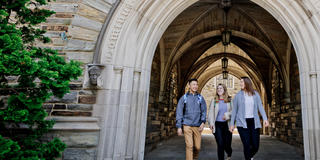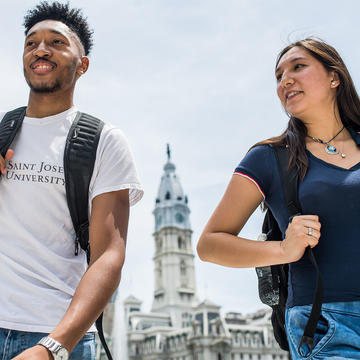
Inclusive Excellence at Saint Joseph's University
We’re Committed
As a Jesuit university, we’re committed to educating and caring for the whole person across all aspects of identity. We’re a community of unique individuals, sharing a deep sense of belonging — where voices are heard, opinions are respected, and our differences are celebrated and valued.

Diversity Statement
In keeping with our Ignatian values, Saint Joseph’s University recognizes the need for a diverse and inclusive learning community. The contributions from a diverse group of people serve to benefit the personal, academic and professional growth of all members of the community.
Our understanding of diversity prevents any individual from being excluded from this community on the grounds of race, color, ethnicity, national origin, immigrant status, gender, sex, sexual orientation, gender identity, age, physical ability, cognitive ability, religious beliefs, physical appearance, income or economic background, marital status, military and military veteran status.